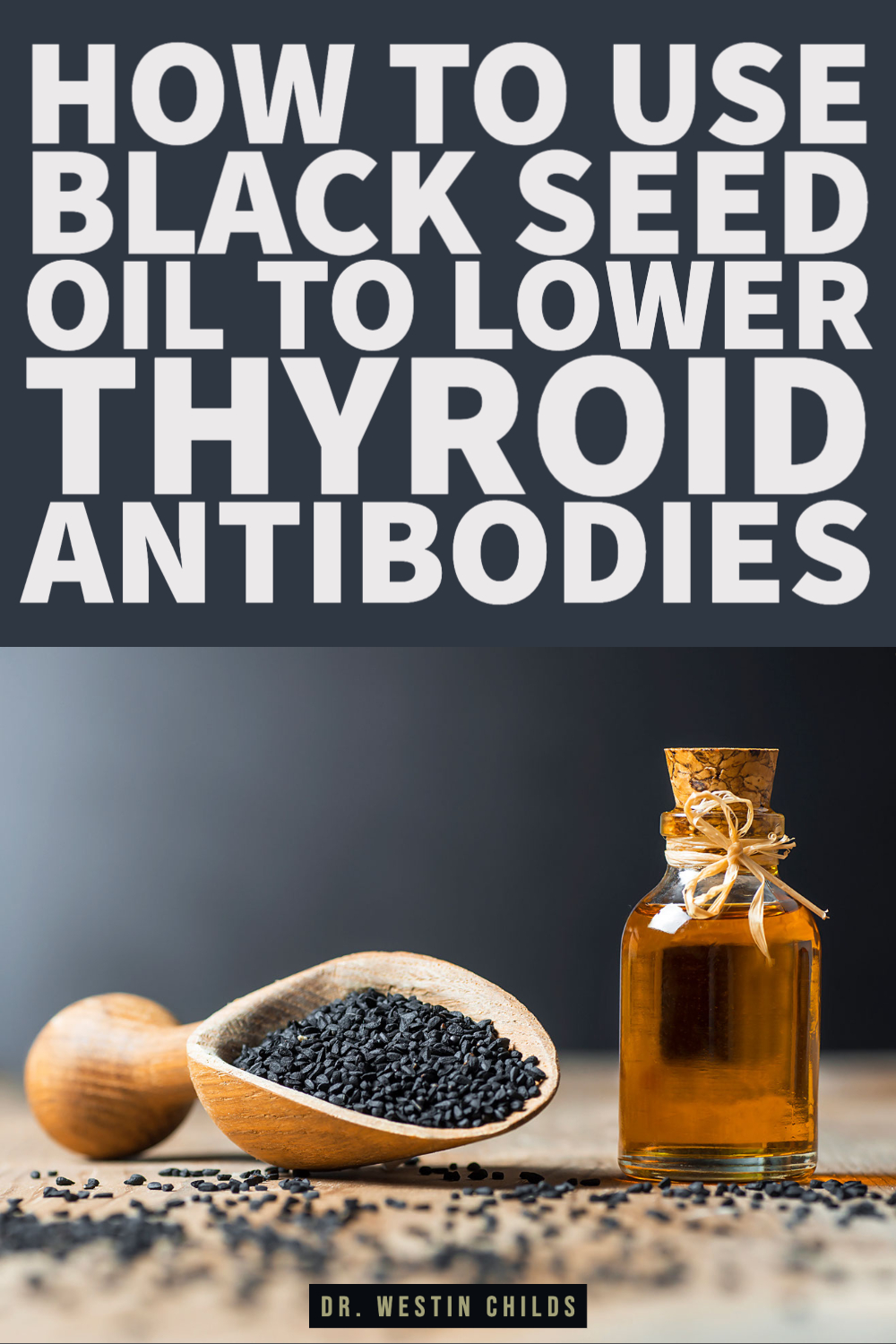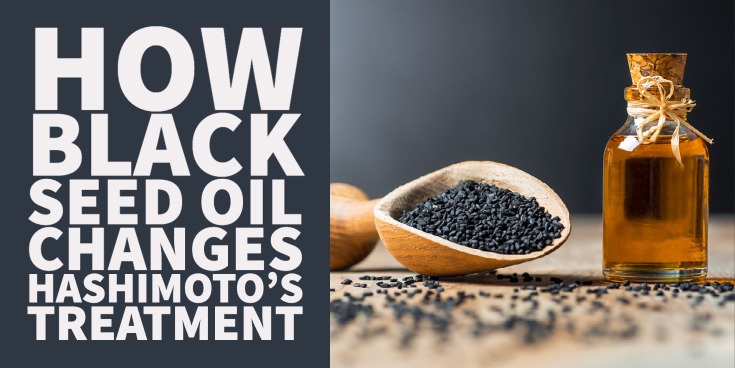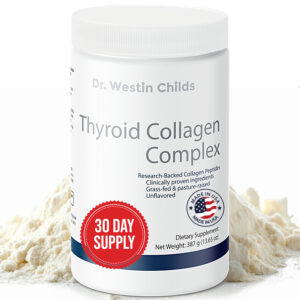Does it feel like there are no good treatments available for patients with Hashimoto’s thyroiditis?
It’s not in your head, it’s the truth.
Despite Hashimoto’s being the most common cause of hypothyroidism in developed countries, there are VERY few treatments available for this condition.
Before you get worked up, let me explain:
Yes, we have treatments for the thyroid dysfunction aspect of Hashimoto’s in the form of levothyroxine.
But what I’m talking about here is that we don’t have any good treatments for the autoimmune aspect of Hashimoto’s.
It’s well known that the underlying problem in autoimmune disease, any autoimmune disease, is the immune system.
And if you can slow down the immune attack on whatever tissue you are looking at, you can essentially cure whatever autoimmune disease you are looking at.
This is the approach that doctors take for just about every autoimmune disease you can think of, except Hashimoto’s.
In Hashimoto’s, doctors focus more on the thyroid instead of the immune system which leaves patients with this condition in a difficult situation:
Should they just let their own body attack and destroy their thyroid gland?
Or should they try to do something about their immune system?
Unfortunately, there aren’t many good options available from your doctor outside of off-label medications like LDN (which is very hard to get).
But this doesn’t have to be a problem because of incredible natural treatments like nigella sativa and black seed oil.
These natural treatments can actually help you get control of your Hashimoto’s while balancing your immune system.
Sound too good to be true? I thought so too, but it actually works.
Here’s how this plant changes the game for patients with Hashimoto’s:
DOWNLOAD FREE RESOURCES
Foods to Avoid if you Have Thyroid Problems:
I’ve found that these 10 foods cause the most problems for thyroid patients. Learn which foods you should avoid if you have thyroid disease of any type.
The Complete List of Thyroid Lab tests:
The list includes optimal ranges, normal ranges, and the complete list of tests you need to diagnose and manage thyroid disease correctly!
How Nigella Sativa Changes Hashimoto’s Treatment
What is nigella sativa?
Nigella sativa is the name of the plant that produces black seeds which are then pressed to produce black seed oil.
And this plant, and the many bioactive compounds found inside of it (1), have been shown to have promising effects on both the thyroid and immune system in patients with autoimmune thyroid disease.
A placebo-controlled trial highlighted this point perfectly (2).
It showed that patients taking nigella sativa for 8 weeks experienced improved thyroid lab tests, reduced VEGF levels, and even experienced some weight loss.
What makes this compound even more amazing is the fact that it can be used with thyroid medications and that it’s a completely natural compound.
Do these sound like the kind of results that you are looking for?
If so, then I think you’ll find it beneficial to break down this study to see how these compounds can help you feel better.
Before we do, there’s just one quick thing to mention…
The study we are about to discuss highlights the benefits of nigella sativa which is the plant that produces black seeds and, ultimately, black seed oil.
The same compounds that exist in the plant exist in black seed oil and so it’s reasonable to assume that many of the same benefits would be experienced when using the oil versus the plant powder.
Indeed, it’s been my experience that this is true as well as the experience of other patients with Hashimoto’s who have used black seed oil.
I would even go as far as to say that black seed oil is superior to the plant powder because you can control the concentration of individual ingredients.
But we’ll talk more about that later, for now, let’s discuss how black seed oil benefits patients with Hashimoto’s:
#1. It Has a Pro Thyroid Benefit
Probably the single biggest benefit here is that this compound has been shown to have a positive impact on thyroid lab tests.
As you well know, Hashimoto’s ultimately results in damage to the thyroid gland which causes the condition known as hypothyroidism.
This condition is the reason that patients with Hashimoto’s feel so terrible.
Low thyroid function causes things like weight gain, hair loss, fatigue, cold intolerance, constipation, and the list goes on and on.
These symptoms all occur because your body is slowly eating away at your thyroid gland.
And when this happens, it can’t produce the thyroid hormone that it needs and you end up with these symptoms.
The use of nigella sativa has been shown to have a thyroid-promoting effect.
Of the 20 patients who took nigella sativa for 8 weeks, these patients experienced, on average, a drop in their TSH by about 2.0 mIU/l, an increase in their T3 levels by about 0.15 mmol/l, and an increase in T4 levels by about 0.8 mmol/l.
The average starting TSH in the patients treated was 6.42 which dropped to around 4.14 after 8 weeks.
Again, this may not seem like much but this is an absolutely massive benefit considering these patients were not making any changes to thyroid medication dosing.
In this context, these results indicate that nigella sativa is helping the thyroid gland work more effectively.
#2. It Has an Immune Balancing Benefit
Beyond its benefit on thyroid hormone lab tests, it also appears to have a positive impact on the immune system and thyroid antibody levels.
The 20 patients who took nigella sativa had an average starting thyroid peroxidase antibody level of 294 IU/ml.
This level dropped to an average of 147.99 IU/ml after 8 weeks.

This represents almost a 50% drop in their antibody level!
Again, I can’t express how HUGE of a benefit this is, especially without any additional changes to diet and lifestyle (which tend to be VERY effective).
When treating thyroid patients, I consider any drop in thyroid antibody levels to be a huge win, even if it’s a small percentage.
Here we have an AVERAGE drop which is very impressive and, again, indicates that nigella sativa is having some impact on the immune system.
#3. It Reduces VEGF Levels
Don’t overlook this benefit because it’s more important than you might think at first glance.
VEGF stands for vascular endothelial growth factor and its primary job is to increase blood flow by increasing blood vessels.
This doesn’t sound like a bad thing, after all, you do want blood flow to your thyroid gland.
Even though this is true, you don’t want too much.
And it’s been shown that patients with Hashimoto’s have higher levels of VEGF compared to the average population.
This is a problem because high VEGF levels are associated with thyroid cancer.
And we know that patients with Hashimoto’s already have a higher risk of developing thyroid cancer (3), probably because of this growth factor (4).
So reducing your VEGF levels is important if you want to reduce your risk of thyroid cancer as a patient with Hashimoto’s.
The good news is that the bioactive compound found inside nigella sativa, known as thymoquinone (5), appears to do just that.
This benefit is most likely mediated through its anti-inflammatory effects and its anti-cancer effects.
How to Use Black Seed Oil & Nigella Sativa
Are you interested in using these compounds to treat your Hashimoto’s? Before you do, here are a few things to know:
The study that I mentioned here used nigella sativa plant powder at around 2 grams per day as the therapeutic agent.
So if you are trying to replicate the study, you can go ahead and do that.
But I’m going to recommend that instead of using nigella sativa powder, you consider using black seed oil instead.
Here’s why:
- All of the same bioactive compounds found in nigella sativa plant powder can be found in higher doses in black seed oil.
- It’s easier to concentrate black seed oil and its active ingredients which means you need a smaller dose when using black seed oil.
- The individual active ingredients can also be standardized in black seed oil but not in nigella sativa powder.
- The active ingredients and their concentrations will vary depending on where the plant was harvested, where it grew, and so on.
Using black seed oil allows you to get the benefits you are looking for without the need to take higher doses.
But even then, black seed oil isn’t perfect either.
Here are a few things to consider when picking out your black seed oil:
- What is the concentration of the active ingredients: thymoquinone, P-cymene (6), carvacrol (7), and free fatty acids? Are the doses standardized or not?
- Does the black seed oil you are consuming have a high concentration of omega-6 fatty acids (8) or is this accounted for?
- Is the black seed oil you are taking at a high enough dose? In other words, are you taking enough to see a benefit?
- How was your black seed oil stored and transported? In other words, is it good quality or is there a risk of getting a rancid product?
I’ve spent a lot of time researching black seed oil and its active ingredients and here’s what I’ve found to work the best:
- Aim to take a dose of 1,000 mg per day split into 500 mg doses (twice per day).
- Use a black seed oil with at least 3% thymoquinone (but no higher than 10%). You get diminishing returns on the anti-inflammatory effects of thymoquinone at higher doses.
- Find a black seed oil that has a reduced free fatty acid concentration (reduced omega-6 fatty acids). Higher levels of omega-6 fatty acids reduce the effectiveness of thymoquinone and the anti-inflammatory benefit of black seed oil.
- For the highest anti-inflammatory potential, here are the standardized doses of the active ingredients: Thymoquinone 3-5%, 1% P-cymene, <0.1 carvacrol, and <2% free fatty acids.
Following these guidelines will give you the best possible product which means the best results.
You can find a product that meets all of these criteria here.
By the way, I’ve also found that certain ingredients can boost the anti-inflammatory potential of black seed oil including vitamin D3, lutein, and pycnogenol.
So if you want to combine your black seed oil with these compounds, you’ll get an even better benefit.
Recap
- Black seed oil and nigella sativa are all-natural treatments available for patients with Hashimoto’s thyroiditis and Graves’ disease.
- The bioactive plant-based compounds found inside of this plant have been shown to increase free thyroid hormone levels, reduce thyroid antibodies, lower VEGF levels, and overall improve thyroid function in patients with Hashimoto’s.
- These benefits are likely mediated through ingredients like thymoquinone, P-cymene, and carvacrol.
- You have the option of taking 2 grams of nigella sativa each day or 1,000 mg of a high-quality black seed oil daily.
- These treatments can be combined with thyroid medication.
Now I want to hear from you:
Have you ever heard of black seed oil before?
Were you aware that it could be used to treat Hashimoto’s?
Are you planning on using this compound? Why or why not?
Have you already tried it before? Did it help you?
Leave your questions or comments below!
Scientific References
#1. ncbi.nlm.nih.gov/pmc/articles/PMC7501064/
#2. pubmed.ncbi.nlm.nih.gov/27852303/
#3. ncbi.nlm.nih.gov/pmc/articles/PMC9318815/
#4. ncbi.nlm.nih.gov/pmc/articles/PMC3543071/
#5. ncbi.nlm.nih.gov/pmc/articles/PMC4387230/
#6. pubmed.ncbi.nlm.nih.gov/33984423/
#7. pubmed.ncbi.nlm.nih.gov/29744941/
#8. ncbi.nlm.nih.gov/pmc/articles/PMC9498113/




Leave a Reply